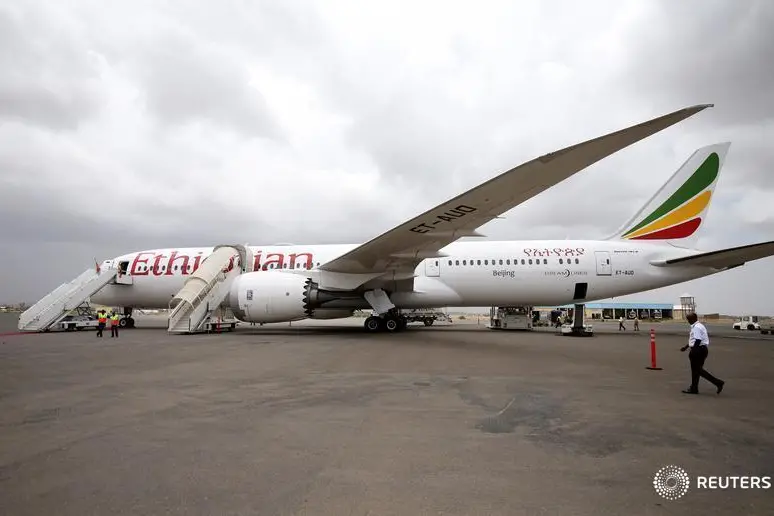PHOTO
Ethiopian Airlines expects to carry 30% more passengers in the year ended June from the year before, its chief executive told Reuters on Wednesday, buoyed by new routes and a rebound in global travel.
Africa's biggest airline, however, faces risks from delayed aircraft deliveries and the grounding of some planes due to engine shortages caused by supply chain disruptions, Mesfin Tasew Bekele said in an interview.
"We have a lot of challenges. For example, today we have aircraft shortage since the manufacturers, particularly Boeing, are delaying aircraft deliveries," he said.
The delivery problems mainly affect narrow-body passenger jets from Boeing, he said, while the grounding is affecting wide-body aircraft used for long-haul travel.
Ethiopian, which carried 13.9 million passengers in the year ended June 2023, does not operate the variant of Boeing's MAX jets that suffered a panel blow-out earlier this year, Mesfin said, and it is confident Boeing can deal with safety concerns.
"We believe that Boeing is in a good position to fix all these," he said.
Ethiopian is operating a fleet of 146 Boeing, Airbus and De Havilland planes, below the ideal level of 150, Mesfin said, due to the delivery delays.
It has firm orders for 70 Boeing and Airbus planes and options to buy 54 more, part of a plan to double its fleet and route network by 2035.
The growth plan is expected to boost annual revenue and passenger numbers by 400% and 440% respectively by the target year.
Ethiopian's passenger numbers in the first nine months of its current financial year show it is on course to hit its growth target for this year, including a 20% increase in revenue to $7.3 billion, Mesfin said.
"We are expanding our network and we're increasing the frequencies on the existing network," he said, citing new destinations like London Gatwick, Madrid and Bangui.
The airline is also investing in its cargo business, including launching a $55 million e-commerce shipments handling facility at its Addis Ababa base in February this year, targeting firms like China's Alibaba and others, Mesfin said.
"E-commerce business is growing now, faster than ever," he said, referring to demand on the African continent. (Reporting by Duncan Miriri; Editing by George Obulutsa and Mark Potter)




















